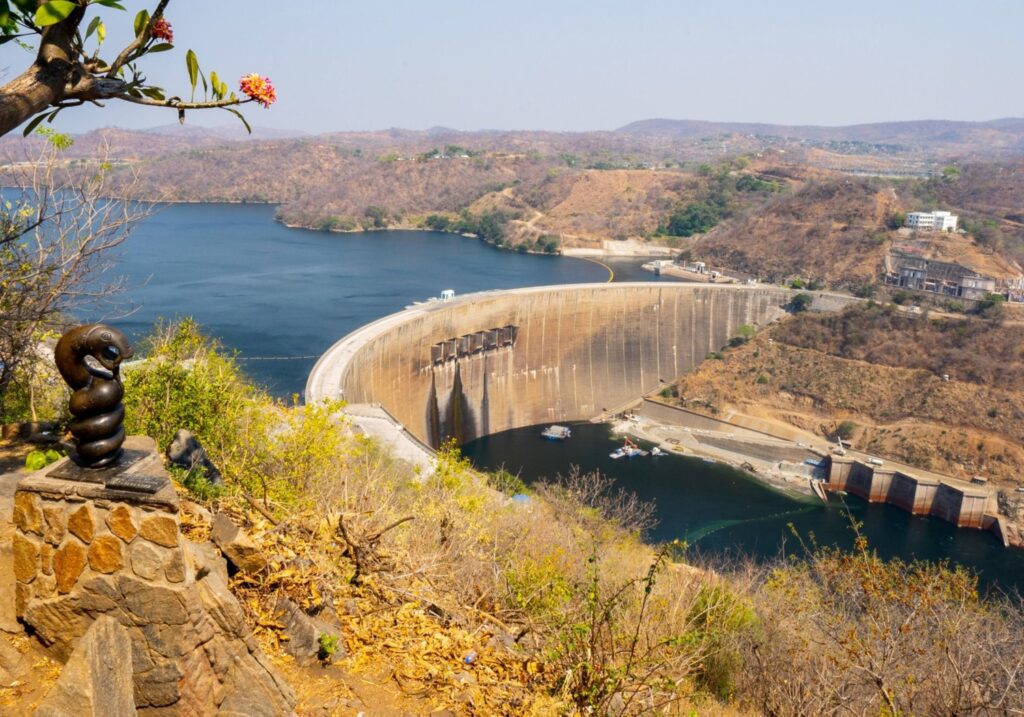Zambia is currently facing its most severe electricity crisis in recent history, despite being home to the mighty Zambezi River and the hydro-powered Kariba Dam. Frequent blackouts, sometimes lasting for up to three days, have disrupted daily life for the 43% of Zambians connected to the national grid, leaving many frustrated and disillusioned. The widespread power cuts are a direct result of one of the worst droughts in decades, exacerbated by the El Niño weather phenomenon, which has dramatically reduced Zambia’s power generation capacity.
The drought has dried up key water reservoirs that supply up to 84% of Zambia’s electricity, including the Kariba Dam, which is now operating at a mere 7% of its installed 1,080 MW capacity. With only one of six turbines functioning, water levels have hit historic lows, affecting businesses, schools, and households across the country. In response to the crisis, some Zambians have turned to bars and restaurants, not for socializing, but for charging their phones, as businesses run generators to meet minimal power needs. A new informal economy has even emerged, where individuals profit from charging the devices of those left without power.
President Hakainde Hichilema declared the drought a national disaster in February, but the government has been unable to adequately address the energy shortages. Financial constraints have made it difficult to import electricity from neighboring countries, with suppliers demanding upfront payments. In recent weeks, however, some relief arrived as Zambia began importing power from Mozambique and South Africa to support key industries, especially mining, which remains the country’s largest foreign exchange earner.
For weeks, the crisis was worsened by the routine maintenance of the country’s only coal-fired power plant, Maamba Energy. However, Minister of Energy Makozo Chikote announced the plant’s return to full capacity, offering a glimmer of hope with a promise of at least three hours of electricity per day. Still, many Zambians feel these efforts fall far short of addressing the magnitude of the crisis.
The energy shortages are causing ripple effects throughout society. Businesses are cutting hours, laying off employees, and even bakeries struggle to keep up with demand due to the high cost of operating generators. Hospitals and kidney dialysis patients are struggling to cope with erratic power supply, and families find themselves discarding spoiled food, as fridges fail to stay powered long enough to preserve perishables. Meanwhile, people are forced to cook on gas stoves and use charcoal for heating, raising concerns about environmental impacts and carbon emissions.
Although the government has encouraged the adoption of solar energy by scrapping import taxes on solar equipment, solar power remains out of reach for most Zambians due to high costs. Even for those who can afford panels, insufficient sunlight during the drought hampers their effectiveness. Some households, particularly in middle-class areas, are also grappling with water shortages as borehole pumps stop working due to the lack of electricity.
The government has pledged to reduce the country’s reliance on hydropower from 84% to 60% by diversifying its energy sources, including coal and solar power. Despite the environmental implications, the energy regulator has approved plans for the construction of a second coal-fired power plant in a bid to prevent future crises. Zambia’s focus on green energy initiatives has been overshadowed by the necessity of ensuring energy security amid unprecedented power shortages.
As the crisis deepens, Zambians are growing increasingly frustrated with the government’s handling of the situation. The power blackouts have exposed the failure of successive administrations to plan for climate change and diversify energy sources, prompting calls for more sustainable and immediate solutions. While the government pushes for long-term investments in renewable and non-renewable energy sources, for many Zambians, the present reality remains one of darkness and uncertainty.



